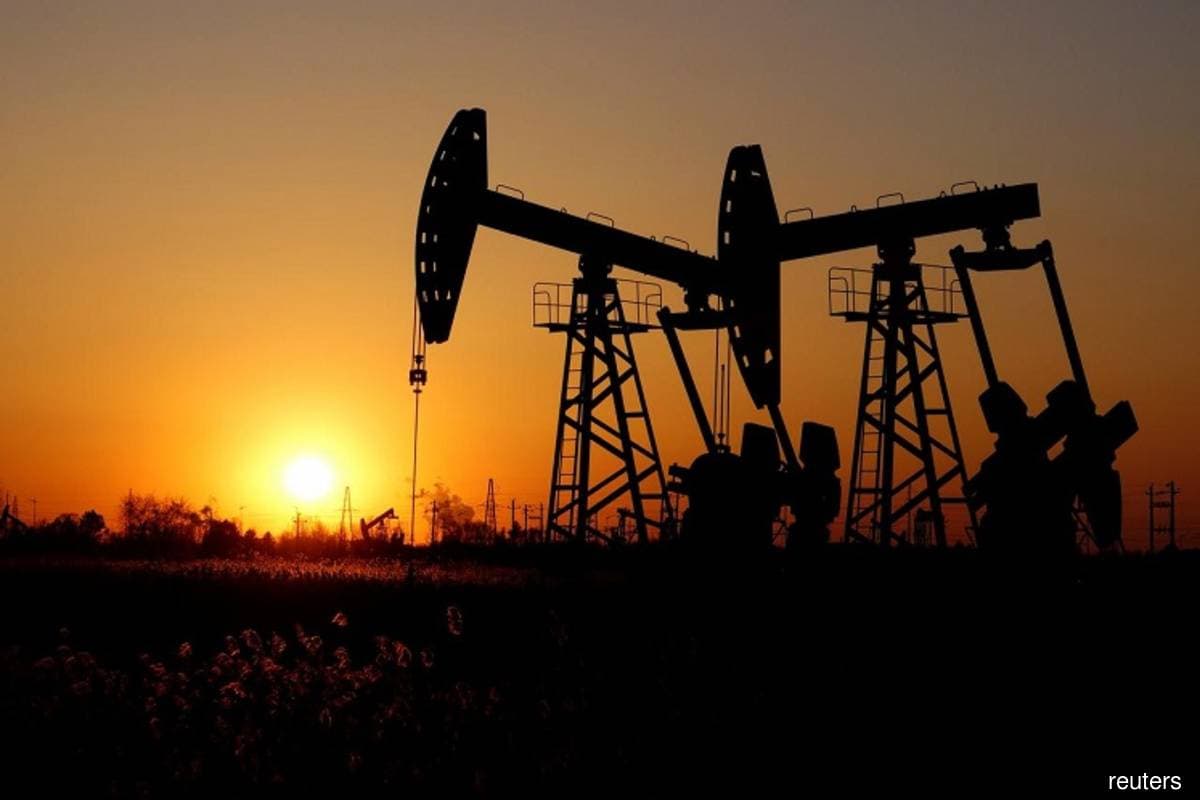
KUALA LUMPUR (July 6): Bursa Malaysia's Energy index, which tracks share prices of oil and gas-related companies, fell the most among Bursa indices on Wednesday (July 6) after the gauge settled down almost 5% at Bursa's afternoon break as recession concerns mounted due to global interest rate hikes to fight inflation.
At Bursa's 12:30pm break, the Energy gauge settled down 32.05 points or 4.73% at 645.46 amid broader market weakness. The 30-stock FBM KLCI fell 15.08 points or 1.05% to 1,425.73.
Globally, it was reported that Asian stocks fell and the US dollar stood by a two-decade high on the euro on Wednesday as investors' fears deepened that the continent is leading the world into a recession, while crude oil and European equity futures made a wobbly attempt to steady.
It was reported that Brent crude oil futures have slid this month on worries that a global economic slowdown will sap demand.
"[Crude oil] prices slumped 9.5% to a 2-1/2-month low of US$101.10 on Tuesday, before bouncing slightly to US$103.86 a barrel in the Asia session on Wednesday.
"MSCI's index of Asia-Pacific stocks outside Japan fell 1%, led by a 2% drop for Taiwan's benchmark index — heavy with growth-sensitive computer chip makers — which hit an 18-month low. Japan's Nikkei fell 1.1%.
"S&P 500 futures fell 0.1% while FTSE futures and EuroSTOXX 50 futures rose 1% after heavy Tuesday selling," Reuters reported.
"The drumbeat is getting louder and louder about recession risk," Jason Teh, chief investment officer at Vertium Asset Management in Sydney, was quoted as saying.
"Right now, defence is the name of the game. It's the best strategy right now, because in a recession a lot of things can fall out of bed," Teh said.
In Malaysia, Hong Leong Investment Bank Bhd (HLIB) analyst Jeremie Yap wrote in a note on Wednesday that HLIB believes that the elevated crude oil price environment will persist in the second half of 2022.
Yap said crude oil demand will be driven by factors including the easing of Covid-19-driven restrictions in China, global summer driving season and recovery in jet fuel demand.
He said HLIB maintained its 2022 Brent crude oil price forecast at between US$100 and US$110 a barrel.
"Meanwhile, Petronas has announced that it will be increasing its capex (capital expenditure) in 2022 to RM60 billion [which] would augur well for the local oil and gas sector as most of the listed service providers in the OGSE (oil & gas services and equipment) space are heavily reliant on Petronas as a major client," he said.